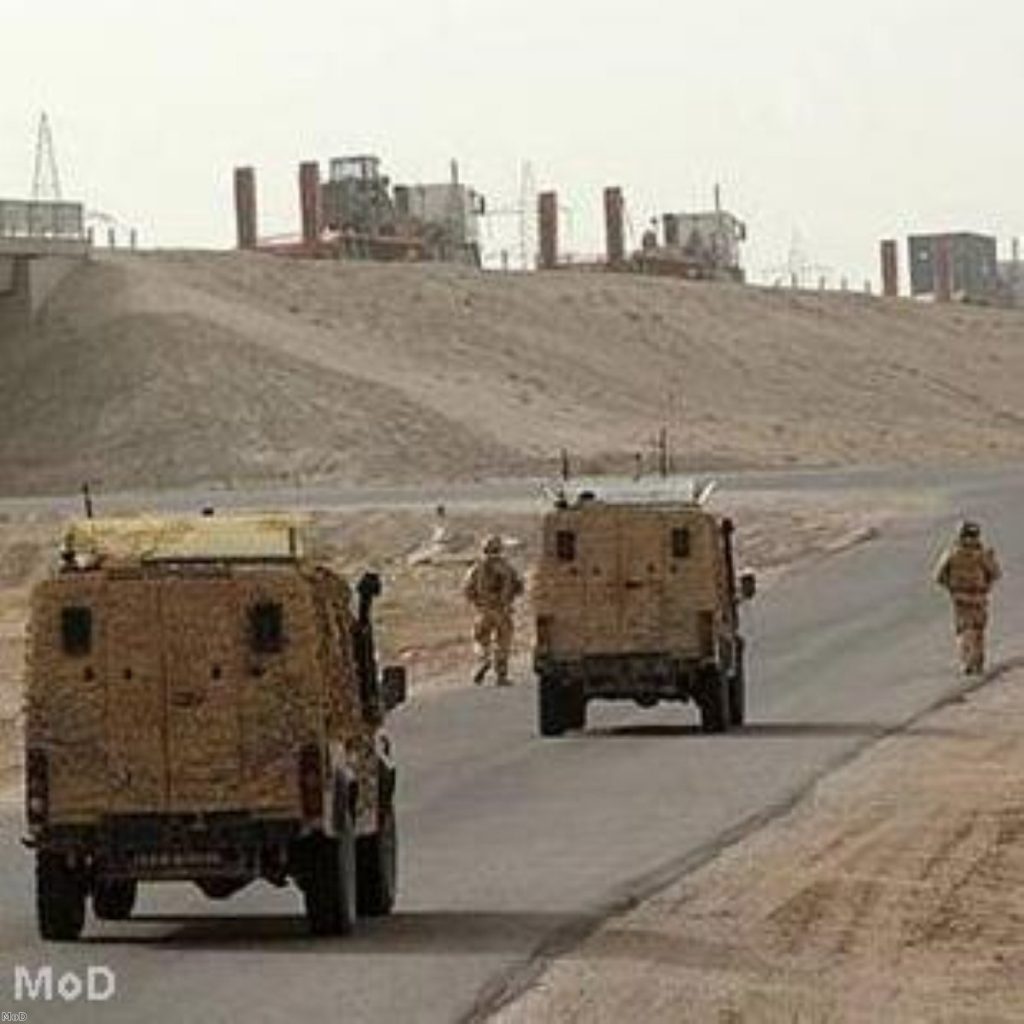Brown rejects early Iraq withdrawal
Gordon Brown has rejected calls for an early withdrawal from Iraq, insisting UK forces must honour their commitment to the country.
The prime minister ruled out a pre-determined timetable for withdrawal from Basra and said such decisions would only be dictated by activities on the ground and advice from military experts.
He argued British troops still have a duty to discharge their obligations to the Iraqi government, adding that they were operating under a UN mandate.
Mr Brown said: “It is wrong to say that the continuing presence of UK forces in Iraq will achieve little, or that they are severely restricted in what they can do. UK forces in Basra continue to have the capability to strike against the militias and provide overall security.


“They will continue to work with the Iraqi authorities and security forces to get them to the point where they can assume full responsibility for security.”
Mr Brown was responding to a letter from the Liberal Democrat leader Menzies Campbell, calling for withdrawal from Iraq in order to focus UK efforts on Afghanistan.
Sir Menzies argued the level of British casualties in Iraq has become “unacceptable” while there is little evidence that the UK’s continued presence in Basra will enable it to meet its priorities.
Moreover, forces are at full stretch in Afghanistan and withdrawing from Iraq would allow the UK to focus on its more achievable mission in Afghanistan, Sir Menzies said.
Speaking of the forces, the Lib Dem leader said: “Their position would be made much easier if we were not engaged simultaneously in two such demanding deployments.
“Afghanistan poses a severe challenge for our forces with its triple requirement to fight the Taliban, to win hearts and minds, and to implement the counter narcotic policy.”
Mr Brown agreed the situation in Afghanistan has become “tough, dangerous and difficult” but denied the UK must solely focus its efforts against the resurgent Taliban.
The prime minister also rejected claims the UK is achieving little in Iraq.
He said: “UK forces in Basra continue to have the capability to strike against the militias and provide overall security. They will continue to work with the Iraqi authorities and security forces to get them to the point where they can assume full responsibility for security.
“We will support them in this endeavour, but it is for Iraqi leaders to make the political decisions and compromises which are essential to the future of Basra and their country.”
Sir Menzies said he was disappointed at the response, which he said “simply rehearses the government line and could have been written by his predecessor”.
He argued the prime minister’s analysis was undermined by the situation on the ground, warning Mr Brown that the issue would continue to remain at the forefront of debate with the upcoming US presidential election.
The Conservatives have also criticised the government’s military strategy in Afghanistan, arguing it is failing to prevent Afghan poppy production.
Liam Fox, shadow defence secretary, called for a redoubling of reconstruction efforts to provide farmers with an alternative income.
He also called on the Afghan government to make an “unequivocal effort” to deal with the corruption that fuels the opium poppy trade.

